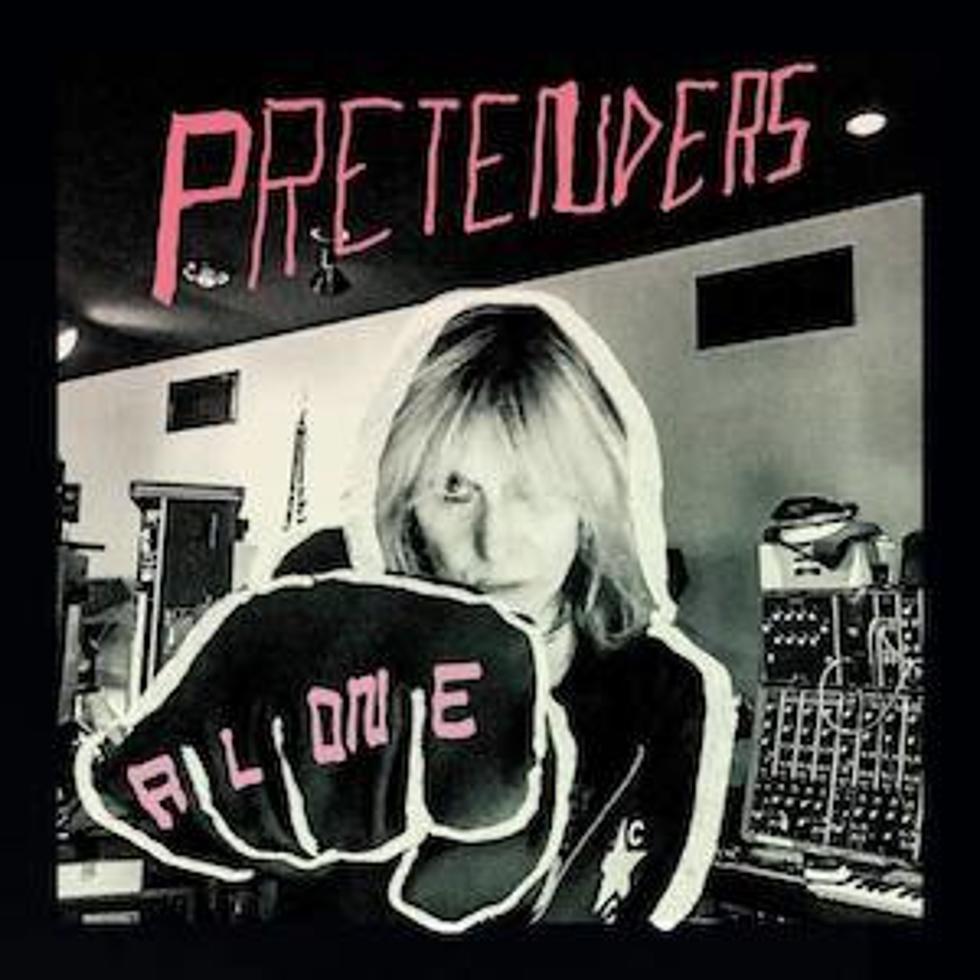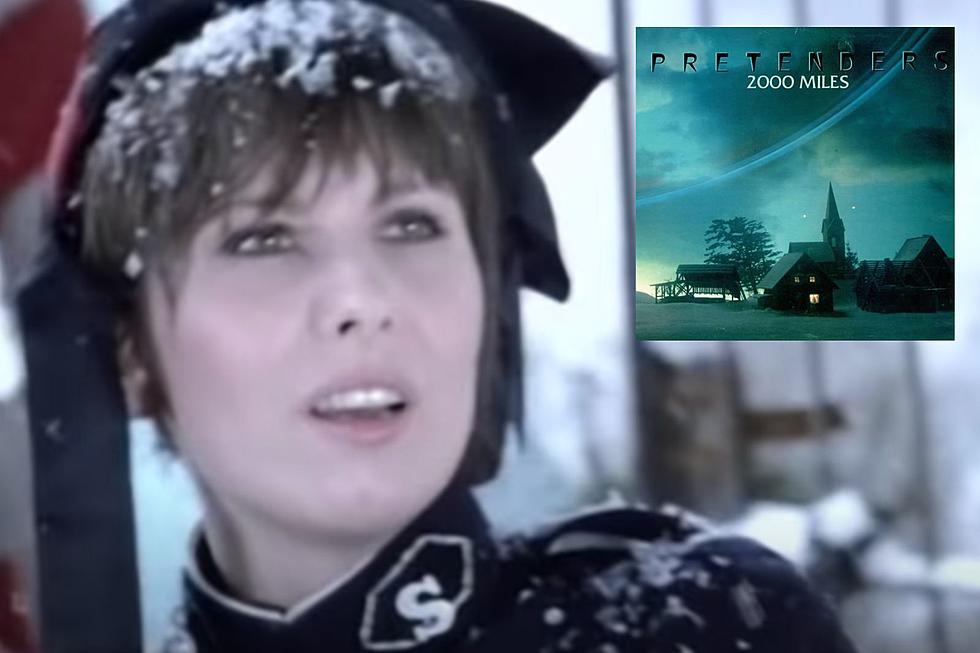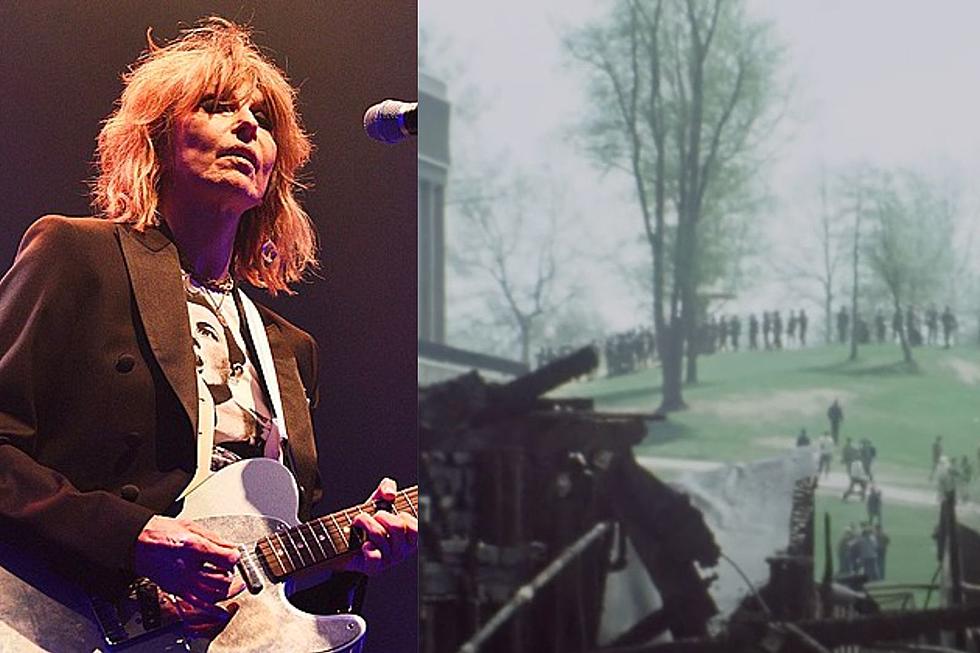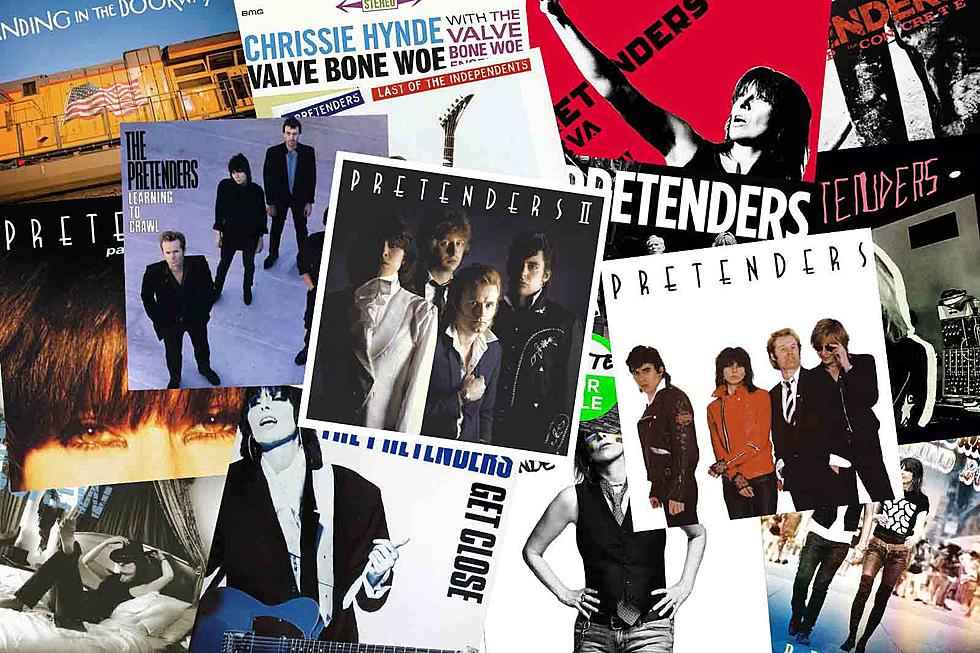
Pretenders, ‘Alone': Album Review
Alone works as a title, since the latest Pretenders album finds Chrissie Hynde going forward without any other members of the band she's fronted since the late '70s. But there's something deeper about it too, as Hynde examines both the empowerment and the want associated with being by yourself.
Hynde isn't actually alone here, of course. A new collaborative relationship with fellow Akron native Dan Auerbach ended up sparking Hynde's first Pretenders LP since 2008's Break Up the Concrete. And, in keeping with Auerbach's work with the Black Keys and the Arcs, Alone boasts its share of overt musical nods toward classic R&B, Spector-ized '60s pop and mid-century blues -- with a dash of the dance-y modernity that marked Hynde's 2014 solo album Stockholm. (Auerbach also brought along a couple of his Arcs bandmates, as well as '50s guitarist Duane Eddy for a cameo on the lithe "Never Be Together.")
But on a deeper level, she must contend with the pressure of being the sole proprietor of the Pretenders franchise. In this way, Hynde has been alone for a while.
She hasn't done a session with original drummer Martin Chambers since 2002's Loose Screw. (The other two original members, guitarist James Honeyman-Scott and bassist Pete Farndon, died within a year of each other, following the release of 1981's Pretenders II.) Chambers drifted off later in the '80s, as Robbie McIntosh and Blair Cunningham helped solidify the lineup, before finally returning in 1993. By then, however, Hynde was already displaying a penchant for replacing members with sessions guys, beginning with 1990's Packed!
Her voice, as a singer and as a composer, had become the connective tissue – and, far more than in the early days when Honeyman-Scott and Farndon made notable contributions, her struggles and triumphs ("I've got a kid; I'm 33, baby!") were now inextricably bound with the Pretenders. Alone is no different, as Hynde places herself in context with this place and time, all while remaining true to the band's age-old creative aesthetic – one that's by turns hard as nails and soft as silk.
The opening title track, a bluesy gem, is a hard push back against anyone who dared doubt her. ("Nobody tells me I can't," Hynde dangerously coos. "Nobody tells me I shan't.") She stomps through "Gotta Wait," while "Never Be Together" strikes a balance between lingering regret and re-emerging independence. Alone then takes an inward narrative turn, with Hynde addressing the darker emotional forces that surround even those who are most committed to rugged individualism. Songs like "Let's Get Lost," "The Man You Are" and "I Hate Myself" explore the other side of a loner's existence, delicately laying out the costs.
Deferring to no one, Hynde talks about heartbreak with just as much brutal honesty. Whether she sings "Death Is Not Enough" as a lament for her lost bandmates or for the absence of something more fundamental in her emotional life – or both – the result is the same: Alone reminds us all over again what a nuanced, utterly compelling songwriter Hynde has always been – and why she's not just the face of the ever-evolving Pretenders, but their heart and soul.
The Top 100 Rock Albums of the '80s
More From Ultimate Classic Rock









